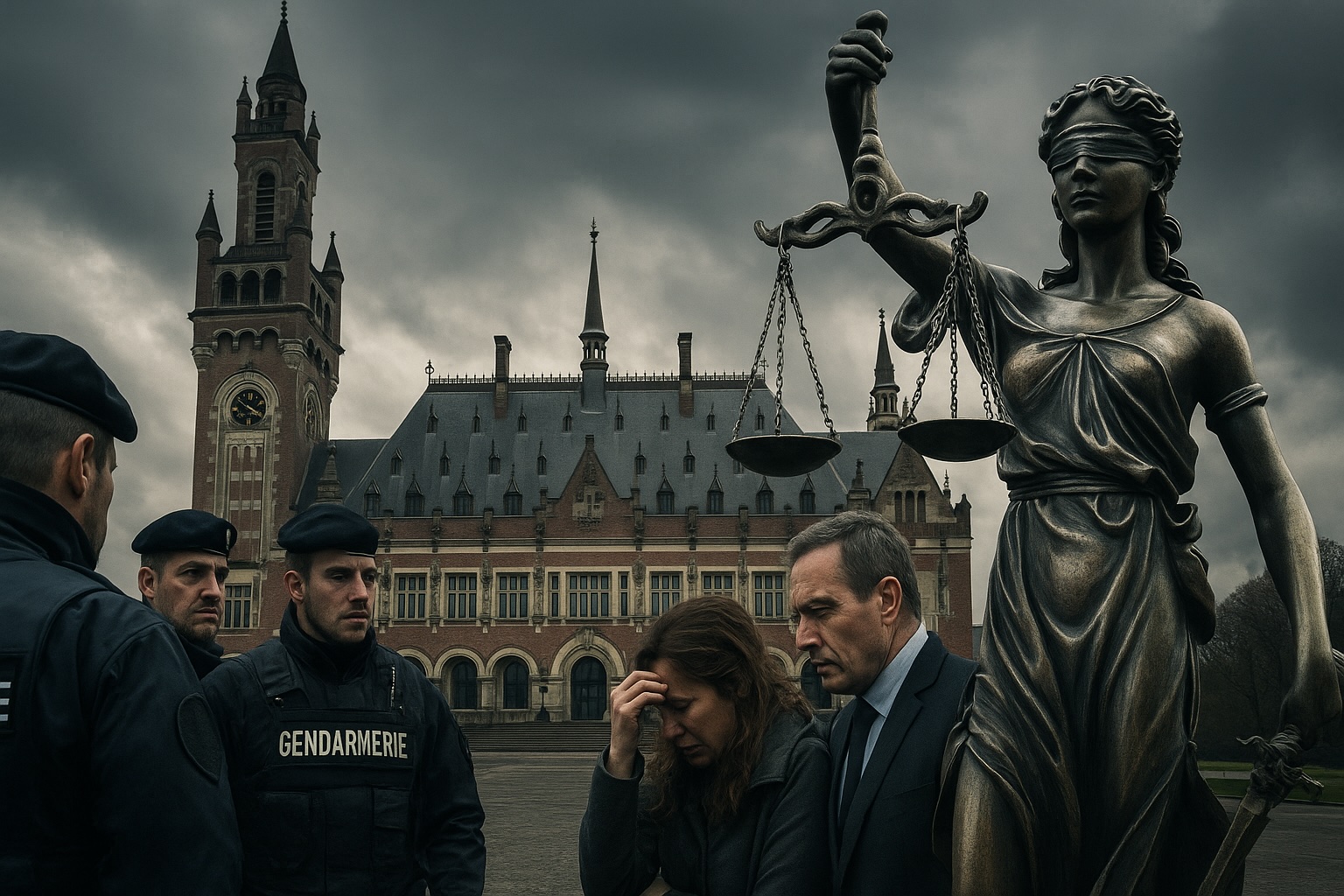Held for 3 Years — France Fights Back Against Iran’s ‘State Hostage’ Tactics
Hostages in the Shadows: France Drags Iran to World Court Over Consular Violations

France Takes Iran to the International Court of Justice Over Detention of Two Citizens Amid Deepening Diplomatic Rift
THE HAGUE / PARIS – In a rare and forceful legal maneuver, the French government on May 16, 2025, formally submitted an application against the Islamic Republic of Iran to the International Court of Justice (ICJ), accusing Tehran of gross violations of international law. At the center of the case are two French nationals—Cécile Kohler and Jacques Paris—who have been detained in Iran since 2022 under what French officials now openly label as state hostage-taking.
The decision to escalate the matter to the ICJ comes after years of quiet diplomacy, restricted consular access, and growing international frustration over Iran’s opaque detention practices and the conditions under which foreign nationals are held.
Held in Silence, Against International Norms
Cécile Kohler and Jacques Paris were arrested during a trip to Iran in May 2022, accused of fomenting unrest and “acting against national security.” Despite repeated demands from Paris, the detainees have received only four consular visits in three years, and even those were conducted under extremely restrictive conditions, violating multiple provisions of the 1963 Vienna Convention on Consular Relations.
Under this treaty, to which both France and Iran are signatories, the right of a state to access its detained nationals and provide consular support is clearly guaranteed. France’s application argues that Iran has “seriously and repeatedly breached” these obligations, depriving both individuals of their basic rights and obstructing France’s diplomatic protection duties.
Legal Action Amid Diplomatic Standoff
The French Ministry for Europe and Foreign Affairs, led by Minister Jean-Noël Barrot, confirmed that the filing with the ICJ aligns with France’s broader strategy to secure the unconditional release of its citizens. In a statement issued from the Quai d’Orsay, the Ministry condemned the “shameful conditions” under which Kohler and Paris are being held and emphasized that “this situation is unacceptable and contrary to international law.”
France is asking the Court not only to confirm that Iran has violated its international obligations, but also to order Tehran to immediately cease these violations and remedy the harm done. The case adds legal weight to France’s diplomatic campaign and sets the stage for a high-profile showdown at The Hague that could reverberate across Iran’s already tense relations with Europe.
A Pattern of Coercive Diplomacy?
France’s case arrives amid growing international scrutiny of what many observers describe as Iran’s systematic use of foreign nationals as diplomatic leverage—a practice critics call “hostage diplomacy.” Similar detentions involving citizens from the UK, Sweden, the United States, and Australia have raised alarms across Western governments, human rights organizations, and the United Nations.
In many of these cases, detainees are subjected to secretive trials, solitary confinement, and prolonged interrogation. Family members, often caught in a limbo of hope and helplessness, have repeatedly pleaded for greater international action.
For Paris, this legal move is a firm break from quiet diplomacy and signals a willingness to internationalize the dispute—a move that could bring both legal scrutiny and global pressure to bear on Tehran’s behavior.
What Comes Next?
The proceedings at the ICJ could take months, if not years. Iran is expected to dispute the Court’s jurisdiction and deny the allegations. However, the symbolism of the case—France standing before the world’s highest court to defend its citizens’ rights—carries undeniable diplomatic weight.
While the ICJ cannot enforce its rulings directly, a verdict against Iran would increase its isolation and could lead to stronger sanctions or collective actions by the European Union and beyond.
The Human Face of the Crisis
Behind the legal filings and diplomatic communiqués lie the lives of two French citizens whose freedoms have been erased. Cécile Kohler, a trade unionist, and Jacques Paris, her partner, have reportedly endured prolonged solitary confinement and restricted communication with the outside world.
For their families, hope hinges not just on political maneuvering, but on justice—delivered not by backroom deals, but through international law. As France presses forward with its case at The Hague, it does so with the voice of two citizens held far from home—and a broader message that such detentions will not go unchallenged.




![From Kathmandu to the World: How Excel Students Are Winning Big [Admission Open]](https://nepalaaja.com/img/70194/medium/excel-college-info-eng-nep-2342.jpg)
